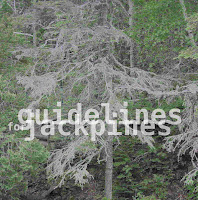A clarification
The question is what exactly it is that we are up to. The answer is clearly that we do not know. That we do not know precisely is most easily followed by that we do not care--we don't care in the sense that it is not an emotional or intellectual necessity to know. In fact, it seems quite reasonable to suppose that not knowing what we are up to facilitates being up to it. It's like the story of Peter on the water.
But in every smaller sense, knowing what we are up to is much better for being up to it. Well, that's not quite true. Knowing you are becoming friends does not help you become friends, knowing you are falling in love does not help you fall in love. Knowing you are doing well leading a group of people does not help you lead them well. It might even break the spell and let you down into the water.
It might, or it might not. But knowing you are trying to repair drywall helps you go about it. Knowing you need to target a certain market helps you do so. Knowing that you need to increase sales might help you target a new market. Knowing a team is relying on you not to blow it is closer to the tipping point of not being helpful, depending on your personality. Looking into whether it will be beneficial to society as a whole if your company increases sales is helpful only in very special cases relative to increasing sales, and in other special cases relative to other things. Looking into why anyone would get up to the business of doing what you are doing in the first place...the answer is clearly that we do not know.
Well...we do not know. But what is the difference between knowing and not knowing? I don't mean what is the difference, when faced with 2+2=, of knowing 4 or not knowing 4. I don't even mean the difference between not knowing 4 and not knowing "+" or "=" or even "2." There are always many things we could learn.
I mean what is different when you approach ultimate questions, as in the example about sales. Your questions are on a trajectory in that example. They move from requiring knowledge of fewer things to eventually require knowledge of all things. The question is approaching an infinite point: why does everything in the universe and any other universes do just as it does? As you move along this trajectory, there is a subtle shift in the nature of what an answer could be. It is subtle because of the remarkably fine gradation. We seem to use the same word for the thing you would know in answer to the question: truth.
In the same sort of way, a scientist could study an organism, the organism is part of an ecosystem, eventually you can get to something like the Gaia theory where the planet can be seen as an organism. Presumably you could go on from there. The nature of being is graduated out until it too becomes a universal.
This is what I mean in earlier posts when I put truth and being as sort of points in a grid or points from which other things move.


0 Comments:
Post a Comment
<< Home